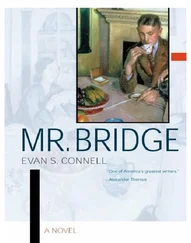But no one had to tell him about powerful . His father, he discovered, could have whole families arrested or sent to Siberia. Or even shot.
Once he knew this, things began to happen—he made them happen. Like mentioning his father’s name in a roomful of people and waiting for the nervous coughing or stillness in the air that was suddenly thick with fear.
One day he made the most important discovery of all. In the face of other people’s fears, Aleksei forgot his own. He began to study people more closely. With a word or a hint, he found he could always get his way, and no arguments. He got lots of presents and invitations to parties. He began to experience a secret pride—and a heady new feeling of power. He became a sort of crown prince, reigning in the dark shadow of his father.
When he was about seven years old, the presents and invitations ceased abruptly. His mother had gone to Germany with his little brother Kolya and then disappeared. His father was blamed for letting her leave the country. At first Aleksei feared for his father’s personal safety but what happened turned out to be worse. Three judges from his father’s own organization held a “troika”—a secret trial—and his father was branded an “Enemy of the People” even though he’d been cleared of being a “co - conspirator” and a “wrecker.”
Aleksei had never particularly noticed his style of living, but he noticed its absence. No more five-room flat in Moscow filled with furniture and paintings and Oriental rugs. No more dacha in the country. Gone in the blink of an eye. One day the Andreyevs were at home. The next, they were living in a two-room flat shared by three other families in an apartment house on the outskirts of Moscow.
But physical discomfort and hunger weren’t the worst of it. Aleksei Andreyev, crown prince in a secure world, experienced a raw terror that transcended his old fears. This time, it was a knowledgeable terror. It sprang from the fear-inducing tools he had used against others that could now be used against him! He knew informers were planted, not just in factories, but in apartment buildings like the one he, his father, and his little brother Kiril lived in. His father complained endlessly that even thieves and murderers fared better when it came to punishment than “betrayers of the revolution.”
Aleksei realized his father would never rehabilitate himself and resume his old career. His father was drinking himself into an early grave… On that same night, Aleksei made a solemn oath that someday he would win back the family honor. Someday, he would hold his father’s post.
In the midst of making bold plans, he noticed that the prospect of such a future brought him a sense of relief. That the terror he carried with him, like a heavy knapsack on his back, didn’t bear down quite so heavily.
* * *
It took him over twenty years, but by the time Aleksei was in his early thirties, the terror had disappeared. The years he’d invested in the Archives Section of the Information Directorate—his “mole years,” he was later to call them—had finally paid off. After being given access to the Classified Library, he set about learning its contents as no one ever had—lovingly, like a violinist with his Stradivarius. He became an expert researcher. He stole files. He honed his ability to ferret out and file away in a steel-trap memory the secrets and misdeeds of people who were in a position to help him. As to those who might do him harm, he became adept at applying just the right combination of hints and pressure, promises and threats, to keep his potential enemies at bay.
At first, he barely survived. Over time, he prospered.
Until the day he realized his career could be crushed as swiftly as his father’s had been—and by the same kind of sledgehammer.
His brother Kiril was leaving a trail of unhealthy rumors in his wake. Allusions were made to Kiril’s diversionist tendencies. His unpatriotic attitude. Some of the disreputable people he hung out with.
Cursing himself for his lack of foresight, Aleksei put into immediate operation a tight surveillance program. Even so, a feeling of vulnerability continued to dog him until the day—following a chance encounter on a Moscow street—Luka Rogov, who’d served under him during the Great Patriotic War, reentered his life. Luka, the fearless, incapable of entertaining a scruple inside that sluggish brain. Luka, the human torture machine. Luka, his loyal soldier, who—when necessary—took pleasure in meting out pain to Aleksei’s enemies. Over the years, they had morphed into an effective interrogation team with a conventional but effective approach: the carrot and the stick. Aleksei brought to the table a subtle mind, a patient literate reasonableness, and a carefully researched dossier on the subject of the interrogation. Luka, a symbolic presence in the interrogation room, was like a bulky piece of furniture—noticeable, but more often than not, unused.
The word got around, making it increasingly easy to deal with recalcitrant subjects. Plum security assignments came his way—most recently when Chairman Khrushchev had a good excuse to clash with General Eisenhower and cancel the summit.
In recognition of his achievements, Aleksei remained confident he was close to being rewarded with the biggest plum of all—a KGB intelligence position equivalent to the one held by his father in the Cheka .
Until a few months ago.
Until the night Stepan Brodsky had tried to defect and had almost pulled it off.
Aleksei’s pipe had gone out. Tapping it idly against one of the limousine’s jump seats, he followed the drift of cold ashes onto the rug. True, he thought, the Brodsky affair was no more than a blemish on his otherwise clean record. On the other hand, no one in intelligence could afford blemishes.
But Aleksei was a realist. He had mixed feelings about trying to get Dr. Kurt Brenner to defect. His plan, while a good one, had pitfalls. He thought of it as an intricate puzzle. So many pieces had to fall together in the right way for it to work.
Yet he had to admit that the average Soviet citizen with whom he had dealt over the years was no match for his interrogation skills.
Aleksei visualized a parade of faces: men, women, teenagers. One cowed subject after another. People who had grown used to his threats and the power of his office to make good on them.
But Dr. Kurt Brenner? A prominent American heart surgeon who was used to giving orders, not taking them? A man who had been raised in a decadent culture that nurtured independence?
Aleksei smiled. There was a challenge!
“Zum Wohle aller!” For the good of all!” The Direktor of the Humboldt University Medical Clinic smiled at his honored guest, Dr. Kurt Brenner of New York City, United States of America.
Glasses were raised. Champagne was passed around as, one by one, the array of doctors rose to toast Brenner’s good health in German, Russian, Hungarian, Polish, Bulgarian, Romanian, and Czech.
Someone proposed a toast in honor of the ladies. Galya, seated unobtrusively near a desk in a corner of the spacious room, smiled shyly. Adrienne Brenner inclined her head in a silent “thank you.” Herr Direktor himself was toasted for having arranged such an excellent breakfast in the gaily-decorated clinic cafeteria.
Dr. Brenner did not imbibe.
Breakfast and toasting finished, the doctors began positioning their chairs in a loose semi-circle around Kurt Brenner.
Kiril, his chair arranged slightly behind Adrienne’s, whispered, “Now it begins. They are about to pick your husband’s brain about the latest techniques in cardiology and cardiac surgery. All through the meal and the toasts afterward, they have thought of nothing else. But first, they will waste time going through the required ritual of claiming that doctors in the People’s Democracies have the best of everything.”
Читать дальше












